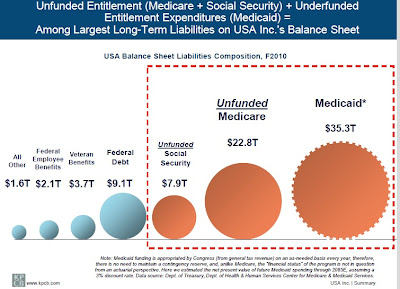Rep. Ron Paul has much to his credit. He is honest. He is true to his principles. He is incorruptible. As for those principles, he is a faithful constitutionalist and so he holds to a restrictive view of what government should do. This stands in sad contrast to most government officials who view the details of the constitution rather carelessly. Dr. Paul, an OB-GYN, has also been a strong defender of the unborn.
But Paul holds these views from libertarian convictions, not Christian ones. He himself is a Christian, but he believes that one's faith is an entirely private matter with no business expressing itself in public policy. How does he know this? Libertarianism tells him so. You see what the controlling authority is.
In "Christian, why Ron Paul?" (Worldmag.com), I argue along these lines.
"Biblical government not only secures us in our lives and property so that “we may lead a peaceful and quiet life.” It also actively cultivates a moral environment that facilitates people’s ability to live their lives “godly and dignified in every way” and pass such moral habits along to their children (1 Timothy 2:2). Libertarians like Ron Paul deny this fundamental biblical political principle. As a result, Ron Paul’s America would look more like It’s a Wonderful Life’s Potterville than Bedford Falls. What is worst in us, unchecked and undiscountenanced, would flourish among us, freely chosen but encouraged by those who would exploit their neighbor’s moral weakness for gain."
Norman Horn of LibertarianChristians.com ("Can a Christian be a Libertarian?") argues for Christianb Libertarianism as a Third Way in American politics.
"Libertarianism treats man’s sinful nature realistically. James Madison famously quipped that if men were angels no government would be necessary. Christian libertarians take this a step further, saying that it is precisely because men are not angels that government must have extraordinarily limited powers."But in saying this he neglects what Madison--also in Federalist Papers No. 51--takes very seriously: the need also for government to restrain the iniquity of the governed.
Joe Knippenberg at First Things ("Libertarianism and Christianity") cites both my column and the Horn argument before concluding:
Non-pseudo-Nietzschean libertarians have always struck me as somewhat Pollyannaish in their assumptions regarding the power—more precisely, the lack of power—of human sinfulness. They see sinfulness in government, but somehow assume that the rest of us will be “good enough” with only the most minimal restraints. What’s more, they seem to assume that a “merely individualist” public philosophy won’t have untoward consequences for our common lives together.








